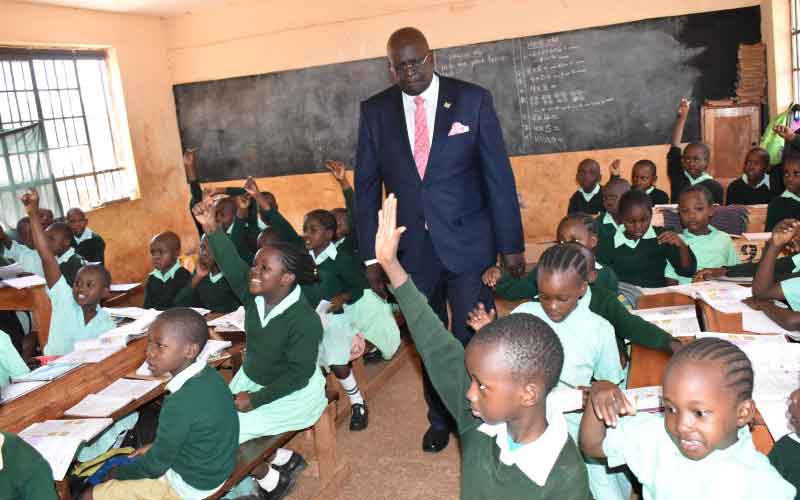×
The Standard e-Paper
Join Thousands Daily

Education Cabinet Secretary George Magoha in one of the classrooms when he toured Kakamega Primary School early in the month. Kenya Primary School Heads Association expresses fears on how to handle pupils and students in day schools who converge in class from different backgrounds. [File]
Top Ministry of Education officials held a crisis meeting as confusion rocked management of public schools after the first case of coronavirus was reported.